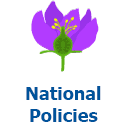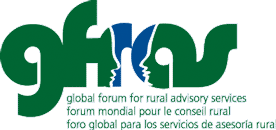 Every country has developed, formulated, and decreed national policies related to rural advisory services. Find some examples here. If you are looking for a national policy from a specific country, please use the search function, selecting the category “National policies” and the tag for the country.
Every country has developed, formulated, and decreed national policies related to rural advisory services. Find some examples here. If you are looking for a national policy from a specific country, please use the search function, selecting the category “National policies” and the tag for the country.
Kenya: Landscape Analysis
This analysis begins with an overview of Kenyan geography, culture, and poverty status. It then provides a description of the Kenyan agricultural sector, the national agriculture strategy, and women’s involvement in agriculture; food security and nutrition issues in the country; and the national nutrition strategy. In addition, the landscape analysis provides details on the Feed the Future approach in Kenya and how USAID’s country strategy supports Feed the Future and potentially INGENAES. The final section of the report includes descriptions of various projects that are relevant to INGENAES.
Honduras: Landscape Analysis
This landscape study provides an overview of Honduras’s agriculture and the status of the country’s extension system. It also contains information on the prevalence of poverty, nutrition, and gender-related issues in the country with special focus on rural areas. The report summarizes Honduras’s current agricultural and nutrition policy and details the strategic goals and objectives of USAID and other donors in the country. The report provides a summary of the on-going projects by the United States Government (USG) and other donors in the country related to agriculture extension, and gender and nutrition impacts.
Haiti: Landscape Analysis
This landscape analysis provides an overview of the current status of Haiti’s agriculture as well as the country’s status in relation to the prevalence of poverty, nutrition and gender related issues. It contributes to the knowledge base of Feed the Future countries for both the INGENAES team and country extension and development practitioners. The report examines and summarizes Haiti’s agricultural and nutrition policy, and USAID’s strategic goals and objectives for the country. Since the 2010 earthquake, Haiti has been a focal point for development and reconstruction initiatives. This report provides a summary of on-going agricultural projects by the U.S. Government and other donors in the country.
Guatemala: Landscape Analysis
This landscape study provides an overview of issues related to INGENAES’ project objectives in Guatemala. The report gives a summary of country-wide issues but focuses particular attention on the Western Highlands where indigenous populations are the majority, and where Feed the Future is concentrating efforts under the umbrella of the USAID-led Western Highlands Integrated Program (WHIP). This report pays specific attention to the indigenous population of the Western Highlands and to the women of those communities. A 2013 baseline survey was conducted in the WHIP Zone of Influence (ZOI) to help determine the impact of WHIP projects. The data collected is particularly relevant to those intending to work in the Western Highlands and, as such, is frequently referenced in this report.
Ghana: Landscape Analysis
This landscape study provides an overview of Ghana’s agriculture and the status of country’s extension system. It also provides information on the prevalence of poverty, nutrition and gender related issues in the country with special focus on rural areas. It summarizes Ghana’s current agricultural and nutrition policy. This report provides a summary of several on-going projects by the USG and other donors in the country related to agriculture extension, and gender and nutrition impacts.
Ethiopia: Landscape Analysis
The Integrating Gender and Nutrition within Agricultural Extension Services (INGENAES) project is funded through the Bureau for Food Security of the United States Agency for International Development (USAID) to support the Presidential Feed the Future Initiative, which strives to increase agricultural productivity and the incomes of both men and women in rural areas who rely on agriculture for their livelihoods. This report is a reference document that aims to provide an overview of the current status of Ethiopia’s agriculture as well as the country’s status in relation to the prevalence of poverty, nutrition and gender related issues. The report summarizes Ethiopia’s agricultural, gender, and nutrition policy, and USAID’s strategic goals and objectives for the country in these areas.
Burundi: Landscape Analysis
This landscape study provides an overview of Burundi’s agriculture and the status of the country’s extension system. It also provides information on the prevalence of poverty, nutrition and gender related issues in the country with special focus on rural areas. The report summarizes Burundi’s current agricultural and nutrition policy and details the strategic goals and objectives of USAID and other donors in the country. Finally, since the end of the 1993-2005 war, Burundi hosted a number of United States Government (USG) funded projects aimed at rebuilding the war-devastated nation and economy. The report provides a summary of the on-going projects by the USG and other donors in the country related to agriculture extension, and gender and nutrition impacts.
Nepal: Landscape Analysis
This landscape study provides an overview of Nepal’s agriculture and the status of the country’s extension system. It also provides information on the prevalence of poverty, nutrition and gender related issues in the country with special focus on rural areas. It summarizes Nepal’s current agricultural and nutrition policy and details the strategic goals and objectives of USAID and other donors in the country. This report provides a summary of on-going projects by the USG and other donors in the country related to agriculture extension, and gender and nutrition impacts.
Cambodia: Landscape Analysis
This landscape study provides an overview of agriculture in Cambodia as well as the country’s extension system. It also provides information on the prevalence of poverty, nutrition, and gender-related issues in the country with special focus on rural areas. In addition, it summarizes Cambodia’s current agriculture and nutrition policy, and it also reviews several on-going projects by the U.S. government and other donors in the country related to agriculture extension, gender, and nutrition.
Using Agriculture Extension Agents to Promote Nutrition: A Process Review of Three Feed the Future Activities in Ethiopia
In March and April 2014 , the Strengthening Partnerships, Results, and Innovations in Nutrition Globally (SPRING) project conducted a rapid, participatory process review to document experience and learning from activities that are utilizing a common strategy to promote nutrition through Feed the Future agriculture investments in Ethiopia. This strategy involves training agriculture development agents (DAs) to deliver nutrition social and behavior change (SBC) messages and interventions to support the integration of nutrition and agriculture. This review examined the experience of three Feed the Future activities: Empowering New Generations to Improve Nutrition and Economic Opportunities (ENGINE), Agricultural Growth Program – Agribusiness and Market Development Project (AGP-AMDe), and Pastoralist Resiliency Improvement and Market Expansion (PRIME). Capturing the process in Ethiopia contributes to the Feed the Future learning agenda and may also help refine agriculture-nutrition approaches in current and future activities around the world.

